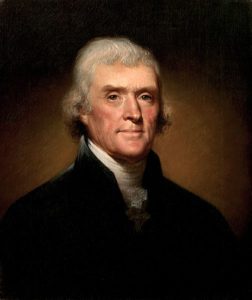The Current Controversy – Libya
The current controversy regarding military involvement in Libya, and whether congressional authorization is required, raises an instructive lesson in constitutional interpretation.
As you probably know, President Obama has committed US forces to assist other NATO countries in aiding Libyan rebels in overthrowing long-time dictator Muammar Gadfafi. He has not sought or obtained approval of Congress for this action, and many in Congress contend that he has exceeded his constitutional power and/or violated the War Powers Act, which requires the president to seek congressional authorization within 60 or 90 days of starting “hostilities.”
What Does the Constitution Say?
The Constitution gives the President the exclusive power to act as commander in chief of the armed forces. However it gives Congress the exclusive power to declare war. The legal issue is whether the operation in Libya is considered a “war,” or merely standard military operations as directed by the commander in chief.
The War Powers Act issue is essentially irrelevant. Because the Constitution divides the military responsibility between Congress and the President, what a later statute has to say about it would not govern. If the action is “war,” the Constitution requires congressional authorization, and the War Powers Act requirement is meaningless. If the action is “commander in chiefing,” then any attempt by congress to remove that power from the president by statute would be unconstitutional.
So what does the Constitution say about the current Libya issue? Is it “war” or acting as “commander in chief?” Some legal scholars, your humble author included, believe that the Constitution should be interpreted according to “original intent;” what would the founding fathers have interpreted their own words as applied to the current situation? It so happens that we have a historical example from the presidency of a principal author of the Constitution, Thomas Jefferson. What’s more, the issue arises in the very same part of the world.
What Did Jefferson Do?
In the late 1700s and early 1800s, the North Africa region now known as Algeria, Libya and Tunisia was rule by pirate warlords. These pirates would seize US and European ships and demand tribute and ransom. By 1800 payments in ransom and tribute amounted to twenty percent of the US government’s revenues, and upon his inauguration in 1801 Jefferson refused to pay further tribute and sent warships to the region.
In his annual address to Congress on December 6, 1801, Jefferson noted that on his own authority he sent a squadron of naval ships to the Tripoli region. However, the took the position that they had been ordered to act only defensively. He stated that he was “[u]nauthorized by the Constitution, without the sanction of Congress, to go beyond the line of defense” and asked Congress to consider authorizing offensive action.
It should be noted that it does not appear that Jefferson considered it a close case. If offensive operations were to take place, he assumed that congressional authorization was needed.
In Summation
Despite the similarity of place, there are important differences between the situation in Libya today and what occurred in Jefferson’s time. Although the forces dedicated by the US to Libya are larger than Jefferson had dedicated to the Tripoli mission, they also represent a much smaller percentage of our armed forces. Further, the Obama administration maintains that US forces are not engaged in “war” because US personnel are not directly engaged in attacks. Nevertheless, those considering whether congressional authorization is necessary for the current Libya campaign should consider how Jefferson and the other founding fathers viewed the situation historically.
 Sam Ventola has a wide variety of experience in litigation, legal education, and mediation. He has been an attorney on both sides in business litigation, employment disputes, probate litigation, and personal injury cases. In addition to being an attorney, he has been a mediator, hearing officer, labor relations professor, and lecturer on litigation, employment and First Amendment issues. He has also achieved the rating of AV Preeminent® by Martindale Hubbell.
Sam Ventola has a wide variety of experience in litigation, legal education, and mediation. He has been an attorney on both sides in business litigation, employment disputes, probate litigation, and personal injury cases. In addition to being an attorney, he has been a mediator, hearing officer, labor relations professor, and lecturer on litigation, employment and First Amendment issues. He has also achieved the rating of AV Preeminent® by Martindale Hubbell.

